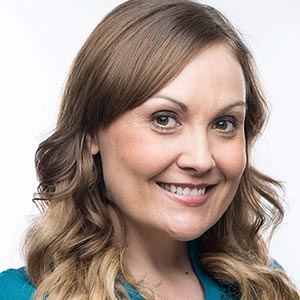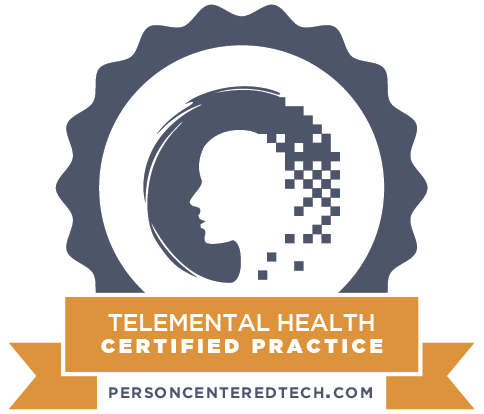Who’d of Thunk?
45 years ago Glenda and I co-founded PCS. 60 years ago, on June 6th, we were married. Glenda is full of grace or we would not be currently married. Among the affirmations that I make daily include having gratitude for the health I do have, for my family, which includes Marcus, whom many of you know and is the Clinical Director at PCS. It is certainly great to have the privilege of working with Marcus for 30 years. It was very helpful to Marcus and me when approximately 32 years ago he and I were “Marilynized”. For those of you who know, have done therapy or read some of Marilyn Murray’s writings, or have been exposed to them in other ways, being “Marilynized” is a great way to get to know yourself.
PCS is a family program that involves Glenda, myself, Marcus full time and our daughter, Michelle as a consultant.
Who’d of Thunk that being married to me could be a good deal for Glenda, or for that matter, any woman. The process of getting to 60 years of marriage has at times been painful. 23 years into our marriage I did individual therapy. We did couples’ therapy and family therapy that led to a 25th anniversary, which was a redoing of our marriage vows in a way that was a process celebrating a much better marriage than when we got married originally on June 6, 1958. I have learned to “rat on myself” and to take accountability. Glenda also has worked on herself. The combination individual therapy for both of us, couples’ therapy and family therapy has been very helpful to getting us to the place where our marriage, at this point, is the best it’s ever been – that’s what Glenda says and what I say. We are still under construction and working on continued improvement and being better at being helpful to ourselves and each other.
Another concept, which is a “new kid on the block” to me is the term “enlightened selfishness”. I am grateful that I am married because I know that I would rather be married than not married and I am married to the person I would most likely to be married to. My story is that on June 6, 1958 I got married before I was ready to get married and didn’t know that. Gratefully, Glenda and I have, and continue to do the work, to have the marriage we both deserve.
Enlightened selfishness helps me to understand that I would rather be married than single. Because I am married to the person that I would most likely to be married to, behavioral changes make me a better deal for myself and for Glenda. Therapy for this therapist has been enormously helpful. The product of therapy means the most to me because of my own growth and continuing need, at age 81, to be under construction.
Another important area is that Glenda has helped me to “listen – learn” in a way that is different than my parents and grandparents did. Because I believe in the golden rule, it makes sense that it is a fundamental necessity that goes against my basic, instinctual nature. Knowing that there is no “cure” for me and at the same time I can keep in “remission” the parts of me that “nuke” my wife and that I am the one who is a bigger loser when I do that. A specific change is that at times when I am thinking about saying something that would be unproductively hurtful to Glenda, and would also then end up hurting me, when Glenda and I are alone, “shut up Ralph”. She doesn’t ask me what was I going to say.
Glenda and I have a commitment that if either one of us believes that we need to get marital therapy, the other will say yes and we know that we are never too old to need therapy. When needed, we will make that happen.
Some of the areas that have become important to me in this stage of life – ala Eric Ericson’s “Generativity” include working with people who are already married who come to PCS either as individuals in a marriage or as a couple. We use the term “premarital therapy” for people who have become legally married and yet need to come to a place in their marriage where the marriage may be in the “ER Room” and either becomes a healthier marriage or may end. We at PCS are biased and would love to see relationships improve and hate to see “divorce for the wrong reasons.” I am privileged to be a part of a group in which there are 27 therapists who have their individual strengths, personalities and specialties which are brought to bear in our Intensive Outpatient Program.
Scott Peck wrote that “life is difficult.” Marriage is difficult and can be incredibly rewarding.
Recently, I heard a friend who started the Arizona Interfaith Movement and our yearly Golden Rule Banquet state “I am the luckiest man in the world.” That friend died of Lou Gehrig’s disease and was quoting Lou Gehrig when he was physically debilitated by what we now call Lou Gehrig’s disease, making that statement at Yankee Stadium. I write this because “I am the luckiest man in the world” and know that. I am lucky to be in the marriage I am in and to be a father and grandfather. The only name our grandkids use for me is “Cuckoo.” Those of you who know me will know that it is a clinical diagnosis from grandkids, as well as an intimate term, which means a lot to me. Within the last couple of years, I have had the privilege as “Reverend Cuckoo” to perform the wedding for two of our grandkids and their partners.
Another piece of gratitude is, the people who have mentored me – my wife, kids and grandkids mentor me. Mentors who have been professors of mine include two people who knew Bill W, who started AA. Reinhold Niebuhr, who authored the Serenity Prayer, which we use regularly Tuesday, Wednesday and Thursday at the end of group was one of my profs. Another prof did his degree at Columbia in Alcoholism and was involved in the beginning of AA. As some of you know, I am an ordained minister who believes that the rigorous honesty that occurs in 12 step groups and in therapy settings such as PCS, provides a depth, including an understanding of what “the Imperfection of Spirituality” really means in all of our lives.
Thanks for your interest in PCS and those of you who have been to PCS as clients, please keep us posted as alumni of our PCS family.
By Ralph Earle, Founder & Clinical Director
VELVET STEELE
Destiny—A Manifesto for All
By KEN WELLS, LPC
If one advances confidently in the direction of his dreams, and endeavors to live the life which he has imagined, he will meet with a success unexpected in common hours. – Henry David Thoreau
It was an August evening over 50 years ago in a little midwest farmer’s town. From my memory it was a special night. The team that I played-the Schilling Stars were facing Columbia Machine for the city championship. Each team had won its division and would play to see who would win the City Series. It was best of three. I was selected to pitch the opening game of the Series and naturally was really excited. I had won all of my games that year, including 2 no hitters where the other team didn’t score any runs. I remember the evening had electricity in the air because I just loved playing baseball. Of course, it was Little League, so our Coach Bernie Nale always played everybody at least the minimum of 2 innings. I never liked it because I just wanted to win. I was always frustrated when we did not have the best players on the field.
Some of the kids only played because their parents made them. During this year there was a kid whose name was Williams. He was one who could care less about baseball. Back in the day of Little League, position players would enthusiastically chatter support for their pitcher between pitches—like “me, me swing batter!”. If the chatter was weak and I was pitching, I would turn to the field and holler for the players to talk it up for me. Once, I was pitching and turned around to yell at all the position players to talk it up. I looked around and saw Williams standing in right field with his glove on his head! He had picked a dead dandelion and was blowing the spores, watching them fly away in the wind. I remember being pissed. Between innings I stormed to dugout and complained to the Coach to do something about Williams. What I recall the Coach said to me is that he would talk to the guy who mowed the field and ask if he would cut the grass a little closer so there would be no dandelions to distract Williams next week.
On this night, I was glad that Coach was in my camp and he intended to play just the guys who would help us win. I remember the smell of popcorn and the pungent odor of cigar smoke. It was all inviting to me. There was a charge of anticipation in the air as the game began. It was a 6 inning game and we were the visiting team. When I came out to pitch the final inning, there was a buzz of thrill in the air. We were ahead 8-0 but what was special is that I had a perfect game going—no one reached base to that point. I’m a lefty and remember feeling really pumped when we got the second out. I remember knowing that I had a perfect game going and wondered if I could get the last guy out. I don’t even remember how we got him out but I do remember being deluged with teammates congratulating me for being “Perfecto”! As I made my way off the field, two people said things to me that changed the direction of destiny baseball would take in my life. One adult came up and told me that the only reason I pitched a perfect game was because of the defense behind me. His son was the shortstop. The other, my brother Jimmy, said to me “Beckett (my middle name) you will be a ballplayer when you can hit .667 the way I did in American Legion ball. We won the City Series but what stuck with my young mind were those two impactful statements.
Destiny is often shaped by words and behaviors to individuals when they are young, impressionable and influenced by others around them. Unless there are people to protect and provide clear perspective, the destiny of many young minds is crushed and cremated before they ever begin.
I remember rolling over in my young mind that no matter what I would do, I could never be good enough. To a young and impressionable mind, it was profound. I had tried so hard to be so good, but somehow in my mind I wasn’t. I had won all of my games that I pitched that year and was not selected to the All Star team. I don’t recall any adult saying much about the game or the season, one way or the other. They may have. But, what stuck were the two adults who said some pretty stupid stuff to an impressionable kid. Things in my inner life began to unravel soon thereafter. I lost my confidence and my way around baseball. Within 2 years of that game, I had given up playing baseball, believing that my best would never be good enough. Whether or not I would have ever been a decent player later in life is unknown and not even the point. What mattered is the experience of destiny being curtailed and stymied by untimely hurtful remarks that shaped my young and naive mind.
As an addict destiny seems to narrow to one central focus—when can I get high, get laid, or figure out where the next hit will come from. All of life is reduced to the utility of craving. Nothing else matters. I’m an addict, a pastor, a professional counselor and a person who started out wanting to be a baseball player. As an addict, I know what it is like when I can’t get enough of what I really don’t want. As a pastor, I have absorbed the pain of a lot of people who pretend to fulfill their destiny with a lot of frenetic energy for God but who end up at a place of deprivation not too far from what an addict experiences. As a professional counselor, I listen to people share broken dreams and destroyed destinies triggered by an all consuming ‘I want what I want when I want it’ mentality from a place of addiction or other dysfunction.
Looking back as a young aspiring baseball player, I was first introduced to the possibility of building dreams and fulfilling destiny playing Little league baseball. It was about introducing the special idea that no matter who you are, there is a destiny to be fulfilled. Even if you don’t know the rules of the game, you dream that you can still be a star player. How many kids who played Little League baseball have daydreamed about hitting a walk off home run or diving and reaching just beyond the fence to catch and rob someone of a home run. Most of us who played have had these and other heroic daydreams.
When my son Jimmy, started playing tee-ball, there was this kid who kept striking out by missing the ball teed up for him. Finally, his last at bat, after two missed swings, he hit the ball on the third try and the ball dribbled off the tee. All the parents were screaming “Run, Run”. The little guy was frozen with little idea what to do. Suddenly, he sprinted to third base to fulfill his destiny. While all the parents yelled at him to go to first base, he went to third and in the midst of all the noise and commotion he and the third baseman stood on third base hugging each other, jumping up and down on the base. This comical picture puts in perspective the intensity of dreams that parents have for their kids around baseball and other sports.
Addiction has a way of squeezing all of the magic out of you. As a counselor, I have heard thousands of heartbreaking stories of people who have been tragically deprived of seeing the possibility of embracing an exciting, adventurous destiny. I would add my story to the long list of those that I have listened to. Many hopes, exciting plans for a happy destiny dashed by addiction and human brokenness.
Every person should have the opportunity to fulfill their destiny. No one should remain stuck in the shadow of their own past or limited by what others say that they can or cannot do. As a pastor and counselor I have listened to many folk speak about the messages they received from their now deceased parents that debilitate, sabotage and defeat destiny.
I have never utilized a ouija board to call back voices from those who have already passed. Yet, I have heard many people share the negative enervating messages from parents who are dead but whose voice is as real as if they were alive today or as clear as any ouija board could possibly create. These are the messages that dominate and narrow vision and eventually destroy destiny— keeping people mired in destructive behaviors.
It is necessary for each person to go deep within themselves and not let the voice or influence of others squeeze them into the mold of common expectations. I was told after I pitched a perfect game in a Little League title game that I would only be a ballplayer when I could hit .667 like my older brother did in American Legion ball. I believed him. In less than 2 years, I quit playing baseball.
I was told that I would never make it in college by one of my high school teachers. My college academic advisor told me that my “C” average in college meant that was all I would ever be in life- just nothing special. In time, I learned to never believe those two people.
When I was little, two people’s opinion and statement influenced and shaped my destiny. Later, two people’s opinion only fueled my passion from within to spurn their conclusion and walk to the beat of a different drummer. By this time in my life I had begun to develop a vision for what I could become and create in my life. I knew down deep that none of these people knew what was inside my heart. It wasn’t like as if I didn’t continue to experience failure during my college days. I had attempted to sell Bible books during the summer of my college sophomore year. I worked 80 hrs a week- from 8am-10pm, going door to door every day. I earned $300 for the entire summer. I returned to college and came within a whisker of flunking out of college after the Fall semester. Later, just after my senior year, I failed as a youth pastor, crossing boundaries with one of the kids in my youth group. Yet, there was something within that reminded me that these results were not who I was.
To know yourself is to be able to fulfill your destiny. Dreams will never be discovered unless you are willing to embrace the mysterious. The journey within will take you to places of uncertainty, conflict and even confusion. Only those who are willing to embrace their heart can truly descend to the depths of their life and know themselves. Fear prevents many from taking the journey from the head to the heart. Many people cannot stand the creative tension that is developed when challenged with looking at what is inside the heart. Addicts dread the tension and stress of the unknown. It drives them to act out.
Only those who are willing to embrace their heart can truly descend to the depths of their life and truly know themselves. The goal is to sit with ambiguity, doubt and despair. Allow these unwanted feeling experiences to do their healing— their purging work! Falling short of this process is settling for something shallow. It will take determination and resolve to move through the uncertainty, doubt and the fear of the unknown. What happens for those who stay the course is that you begin to slowly see your dream on the horizon. It is a wonderful harmonious experience to know your dream that has come from your heart.
It is important to not question it- to just go with the flow of what it brings to you. Always know that you will not have to make your dream come true, rather, it will flow through every part of your being. Like an athlete who in sport stops trying to force the game his way but lets the game come to him. It just happens. Nothing will be able to prevent destiny from happening because ultimately your dream is a part of you and you are a part of your dream.
Your destiny is not about results, it’s about the essence of who you are. It’s about the quality of your being. You will not be able to fail if you connect to the depth of essence of who you are. Destiny becomes a part of the quality of your being. Shame and addiction dominates and tells us that what we do is who we are.
But, be relaxed and confident. You are right where you need to be when you take the journey into your heart. This is where destiny is forged. No need for hurry. There’s no place, no day that you are required to do more than you can do in peace. It may sound “booga- booga”— but always be aware that there is a guiding light, a divine presence that walks beside you to witness and to celebrate your destiny. You are special and your willingness to be present in your heart is witness to this great discovery of destiny.
Dag Hammarskjold once said “We are not permitted to choose the frame of our destiny. But what we put into it is ours”. Destiny is an intriguing dynamic. It equates prospect and purpose. It suggests inevitable conclusion in the course of events. There is a certain mystery to it. There is a sad reality that not everyone is given equal opportunity to rendezvous with destiny. Yet, what some have put into the framework of their hope and vision has inspired many. T.S. Eliot reflected that “A man’s destination is not his destiny. Every country is home to one man and exile to another. Where a man dies bravely at one with his destiny, that soil is his.”
It’s the soil of suffering and struggle that characterizes the content of destiny for many throughout the world. Yet there are those who have miraculously championed the pathway for human dignity for all sojourners who struggle. In unlikely circumstances of squalor and suffering they have embraced the vision of Thoreau who said “if one advances confidently in the direction of one’s dreams, and endeavors to live the life that one has imagined, one will meet with a success unexpected in common hours.”
For most, fear dominates like a pack of wolves chasing you through the woods. Destiny can seem so fleeting, so distant, so dichotomist, and at times phony. It’s important to not be dominated by thoughts that you won’t make it. Remain present in the here and now. In truth, it’s all you have and all you need. Destiny is about living in the connection of every moment of your life.
Picture yourself creating the reality of your desired future. See yourself moving forward like a steady ocean liner plodding its way across the sea. When you experience doubt, always know that you do not have to be afraid if you know who it is and the energy that’s present and walks beside you.
Charting your own path means that sometimes you will be lonely because you are creating destiny. In one sense, it is true that no one is there because you are the only one who can create your specialness. But if you look around there are others who have gone before you and there are those who are present in the here and now who going through the same experience. Know they are there applauding your courage to be you. They are prompting you that you are doing it and that you are not alone. When trouble comes, look inside not out. Everything you need to fulfill destiny is inside your heart. You are capable. With courage, stand for principle and fulfill purpose. The very nature of fulfilling destiny is one of freedom. The freedom that comes from your destiny will free others of their own bondage. Destiny is a healing dynamic that creates conviction within. This is the unexpected success that Thoreau is talking about.
While you embrace your dreams, take time to connect with the energy and vision of others who are creating their own destiny. Their destinies will be similar yet different from your own. You will discover a tipping point whereby others will collectively connect their energy with yours and provide a conglomerate healing force that will permeate the universe. Collective destiny ignites a firestorm of energetic love and positive flow that triggers the power of dream and destiny in countless others. It is through you fulfilling your destiny that you will provide the energy for others to create their own. Peace becomes an emerging theme when people fulfill their own destiny. Judgment, comparison and control will diminish in the presence of destiny. Always know that the peace that passes the understanding of many comes from the destiny that lives inside the heart. Know that your life matters and that every life matters. There is no deprivation in destiny. There’s enough destiny for everybody to know the freedom and the power of creating their dreams. When reality of destiny appears in sufficient amounts there is no longer a need for control and domination of one over another. To be at peace and in harmony with all living things is an ideal pursuit that is the personification of a fulfilled destiny.
By Ken Wells
Spirituality is often thought of as something special or mystical. This depends on one’s interpretations, beliefs and faith as well. However spirituality is also found in the ordinary.
A different view of Spirituality can be thought of as what the world or life is trying to teach us (depending on your orientation, world or life can be replaced with higher power or God). When someone takes a walk in a lush forest, it is rife with plants and animals whose ancestors adapted to survive. Their environment continuously pushed them to find the very best design to survive in that environment, and then to improve on that.
Life seems to continue to ask us these same questions. What is the best way to adapt to this environment? To adapt to this struggle or challenge? What is the best way to live? When we talk about spirituality, it can speak to the way we live our lives on the outside in the physical world, and for sure it speaks to how we live our lives on the inside. The inside meaning our head space, our mental hygiene, the habits around belief and our sense of or lack of having peace. So, what is the best way to live on the inside?
Perhaps it is to do the next right thing. This is a phrase borrowed from 12 step. It speaks to a consistent taking of inventory of ourselves, our condition and where we are in our lives. And, there are mental rewards for us doing the next right thing. These come about when one does what is right, even when doing the other option may be more lucrative, popular, socially sanctioned etc.
Through this practice one can approach having a sense of spirituality through ordinary acts.
It may also be, that part of what makes up this sense of spirituality is failing forward. This is idea that no one is perfect or does the right thing all the time, and that we can learn from mistakes. Part of being spiritual is being very familiar with the hard feelings of not having done the right thing. Or despite one’s best effort to do the right thing, to feel like one failed at it or failed to bring about the change desired by doing the right thing.
Important as well is that doing the right thing is always constrained by culture and social norms. The right thing is an ideal about how to live life. Much harm has been done in the name of God in the attempt (or sometimes as an excuse) to do the right thing. So in trying to do whats right, having a mandate to do no harm is important too.
If we wait for the clouds to part and the divine to come down to us, we may miss our opportunity to connect spirituality through the practice of making the right choices as to how to live and respond to challenge.
By Elijah Bedrosian, LPC
By Heidi Green, Psy.D, Staff Therapist
At PCS, our philosophy is rooted in helping people develop their healthiest self by healing old wounds, understanding how early life experiences helped shape maladaptive behavior in adulthood and moving forward with hope, integrity and balance. We incorporate the Murry Method, developed by Marilyn Murray, which conceptualizes poor emotional health and difficulty in overall functioning to early life experiences that stunt the healthy growth of an individual and inhibit their ability to show up in the world as their authentic, true self. We work with clients to identify areas of stunted emotional development and then grow themselves up into the genuinely healthy person they are meant to be.
Over the years, we have evolved into an increasingly multidisciplinary program, effective with complex client problems such as addiction and trauma. Our clients often present with multiple symptoms, including unresolved childhood trauma, compulsive behaviors, low self-esteem, lack of emotional intimacy, restricted or dysregulated emotional expression, inability to establish and maintain appropriate boundaries, and narcissistic and/or dependent personality traits. We have found that incorporating elements from different theoretical approaches to our family systems treatment model results in significant symptom reduction by the end of treatment and improved real-world functioning. Couples report improved communication, emotional intimacy and overall marital satisfaction.
PCS provides a safe, caring environment for clients who are in crisis or who need more intensive treatment than traditional outpatient therapy offers. Although inpatient psychiatric facilities and residential treatment centers are abundant, most are cost-intensive and require a length of stay that may be prohibitive for many individuals. A short-term IOP provides intensive care that does not require extended time away from work and home at a cost that is more accessible than that of residential treatment. PCS prides itself on offering a unique program that provides transformative care in a condensed format. If you are ready to heal your heart and live the life you are meant to have, we are waiting for you.

 (480) 947-5739
(480) 947-5739 info@pcsintensive.com
info@pcsintensive.com












